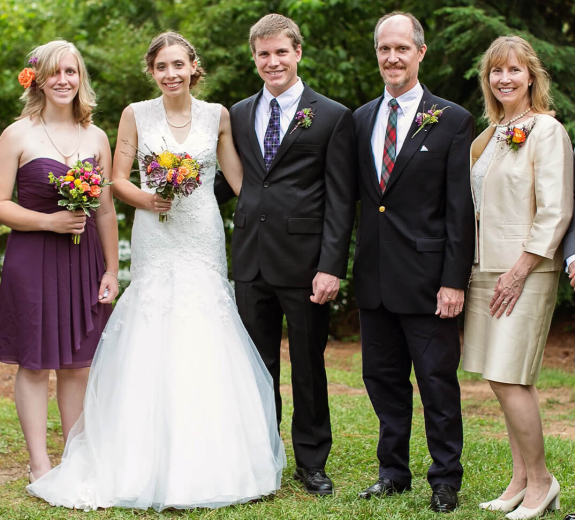
Supporting a Legacy of Research
Recently, we received one of our surprise donations. It came from Penn Mason McClatchey Sr., the grandson of one of the founders of Virginia Mason, John Blackford, MD. In 1920, Dr. Blackford and a group of physicians pioneered an innovative approach to healthcare—multispecialty medicine—and opened a hospital and a clinic that grew to include a research center, all in one place to provide the finest patient care possible.
Giving to Diabetes Research
When Penn received part of an annuity from his mother’s estate that was originally owned by Dr. Blackford, his first thought was to donate the proceeds to BRI. “Not only was my grandfather a founder, but while my mother was a chemistry student at University of Washington in 1941, she held a summer job at Virginia Mason titrating blood sugars for the kids with diabetes,” says Penn.
Penn and his wife, Ann, also happen to have three sons with type 1 diabetes, Mason, William and Forester, though no one in the larger family group has the disease. “We all live in the Southeast, or they would probably be patients of Virginia Mason and participate in BRI research,” he notes. “Please designate this money for type 1 diabetes research towards BRI’s efforts to cure this disease. I’m sure my grandfather would be pleased.”
It turns out that the McClatcheys support diabetes research in many ways and connect with BRI even though they live in the Southeast. All three sons participate in Type 1 Diabetes TrialNet, which is led by BRI with Carla Greenbaum, MD, Diabetes Research Program director, as chair. TrialNet is an international network that conducts clinical studies to evaluate new approaches to predict, prevent, delay and reverse the progression of type 1 diabetes.
Family Fights the Fight
Mason, the oldest son, is a diabetes researcher starting his postdoctoral work at Vanderbilt University School of Medicine and Forester is a contributing writer to the Beyond Type 1 blog. William is studying film and worked as an intern on a type 1 diabetes documentary called the “Human Trial.” The family also supports JDRF, which in turn supports research projects at BRI.
The McClatcheys are especially intrigued by BRI’s approach to applying the breakthroughs we make against individual autoimmune diseases to make progress against them all. One son has four autoimmune diseases and another has two. They were diagnosed at young ages—5, 9 and 16. They also have a daughter who doesn’t have any autoimmune diseases.
“The technology is getting better all the time and we’re grateful for that, but diabetes is such a difficult disease,” says Penn. “It’s hard to always be thinking about what you eat and if you need more insulin. It’s 24/7.”
We’re hopeful a trip can be planned to introduce the McClatchey family to breakthrough diabetes research at BRI and to the legacy of a grandfather that has grown into a large, innovative medical system of 6,000 team members and nine locations. “My grandfather would be humbled and amazed,” says Penn.
Immuno-what? Hear the latest from BRI
Keep up to date on our latest research, new clinical trials and exciting publications.


